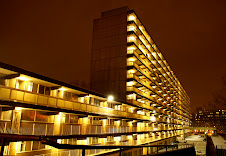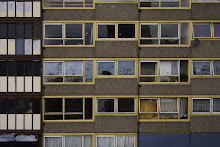Morale at the Cancer Support didn’t seem that great. On my last day, maybe a half-dozen people told me how lucky I was to only be there for a week.
Certainly in the post room they weren’t happy. They were mostly older folks, Londoners with that cheerful London thing of enjoying a good joke, appreciating little courtesies. The second week one of the Londoners was replaced by Hank, a hangdog American, originally from Brooklyn, who’d been living in London off and on since the 70’s. He wasn’t particularly friendly at first – he had that laconic NY thing but e warmed up quite a bit after I’d done the post room a few favours.
He said he’d lived in Gramercy Park and drank at Pete’s Tavern on 18th – he seemed like a Pete’s Tavern kind of guy. He’d lived in the area in the 60’s, when the area must have been prime real estate – the beautiful Manhattan before the 70’s crash. Until recently, he’d stayed at the Gramercy Park Hotel, across the street from 1 Lexington where I had my first job in New York. “All the models used to stay there. But they renovated a couple of years ago and now I couldn’t afford it.”
I never found out what his deal was, or why he worked the postroom at the Cancer Support. I don’t think he or any of the others were volunteers – they complained about the way they were treated and seemed to want to get out each morning as fast as they could. Maybe they were retirees. Hank mentioned being sent to London by his company, who had a branch plant here.
Then there was Gerald, the guy from Zimbabwe. At first he kind of irritated me since I often had to repeat myself telling him things and yet he’d get defensive when I DID tell him things and I generally like to work alone anyway. He WAS a volunteer, and came in twice a week to help out. He’d only left Zimbabwe the year before. His daughter worked in the building – I guess that’s why he volunteered.
He seemed sad, a little lost, caught up in his nostalgia for Rhodesia. Twice, he showed me his tennis booklet, from his Rhodesian Tennis Club in 1969, showing me all the people he knew. Of course they were all white, with bright, ruddy faces and sharp white tennis clothes. He said he used to be a manager of a sugar firm, and I had the sense that white people in Rhodesia had been able shift into pretty much any job they’d wanted and it was hard not to feel just a bit of ‘well, you’re getting yours now,’ at first.
Then he told me that for awhile he’d thought he had Alzhiemer’s because his memory was going, that his doctor had confirmed it until a specialist in Alzheimer’s said no, he was fine in every other respect, he was just having memory loss. He explained that he’d gone to the aid of one of his employees at the sugar firm who was being attacked by some of Mugabe’s henchmen, and the henchmen had turned on him and beaten him unconscious and he’d had short-term memory loss ever since. “I don’t think I could go back to the positions I was in before. I don’t think I could manage it – I forget things too easily now. But it’s funny, once I remember something, it’s in there.”
I understood him a little better after that. Ian Smith had just died that week and he said he’d thought Smith had he’d never liked the way things were gone. He’d stayed on all those years, not just after independence, but after things started going very badly later on. He’d lost not just Rhodesia/ Zimbabwe, but a part of himself as well. He and his wife left Zimbabwe not long after his injury, so whatever physical damage he’d suffered had been compounded by leaving the country where he’d lived all his life, by leaving so much of himself behind and coming to London.
Wednesday, 23 January 2008
Subscribe to:
Post Comments (Atom)







No comments:
Post a Comment